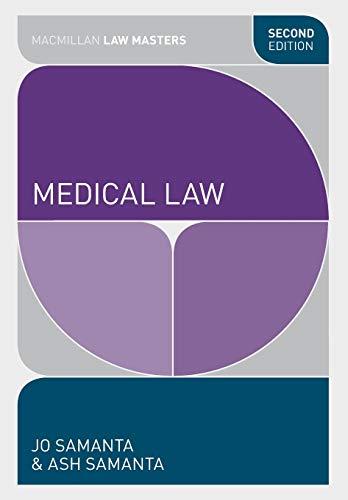Question
Anderson Poole Ltd ('AP) runs a property development business. Bolton Bond Ltd ('BB') trades as a supplier of carpentry services. AP entered into two separate
Anderson Poole Ltd ('AP") runs a property development business. Bolton Bond Ltd ('BB') trades as a supplier of carpentry services. AP entered into two separate contracts with BB with details shown as follows. First Contract The contract was entered into in January (the 'First Contract') for the supply and fitting of new stairs and floors to 'The Grange', a house that AP was renovating. The price agreed was $2,6000,000. The contract provided that BB would complete work within 26 weeks of entering into the contract. Six weeks later AP entered into a contract with Catherine for the granting of a 25 year lease of 'The Grange'. Cathy was to obtain possession 20 weeks from the date of this contract. AP was subject to a penalty of $50,000 per week for each week that Catherine was unable to take possession. In April (i.e. 10 weeks after work commenced), it became clear that BB was not working sufficiently quickly to complete the work in the time agreed in the First Contract. AP therefore promised to pay BB an extra $500,000 if performance was complete by the date provided in the First Contract. BB consequently worked quicker and completed the work on time. Second Contract The contract between AP and BB was entered into in March (the 'Second Contract'). It provided that BB supply and fit six new kitchens to 'The Old Vine Villa', which AP was converting into flats. The price agreed was $3,600,000. The time agreed for completion of the work was 26 weeks from the date of the Second Contract. AP later decided that BB was, again, working too slowly to complete the work within the agreed time so he promised to pay BB a further $150,000 provided the work was completed within the time agreed. BB completed the work on time. AP subsequently discovered that as soon as he promised to pay extra to ensure compliance with the First Contract, BB withdrew all its workers from the Second Contract and put them to work on a contract for another customer. He believes that this was an act of fraud, intended to cheat him of the $150,000 extra that he had promised to pay. He is now refusing to honour either of his promises to pay BB extra money. 2 Advise AP on whether: (a) BB can enforce his promise to pay an extra $500,000 for completing the work on the First Contract within the time originally agreed. (70 marks) (b) BB can enforce his promise to pay an extra $150,000 for completing the work on the Second Contract within the time originally agreed. (30 marks)
Step by Step Solution
There are 3 Steps involved in it
Step: 1

Get Instant Access to Expert-Tailored Solutions
See step-by-step solutions with expert insights and AI powered tools for academic success
Step: 2

Step: 3

Ace Your Homework with AI
Get the answers you need in no time with our AI-driven, step-by-step assistance
Get Started


